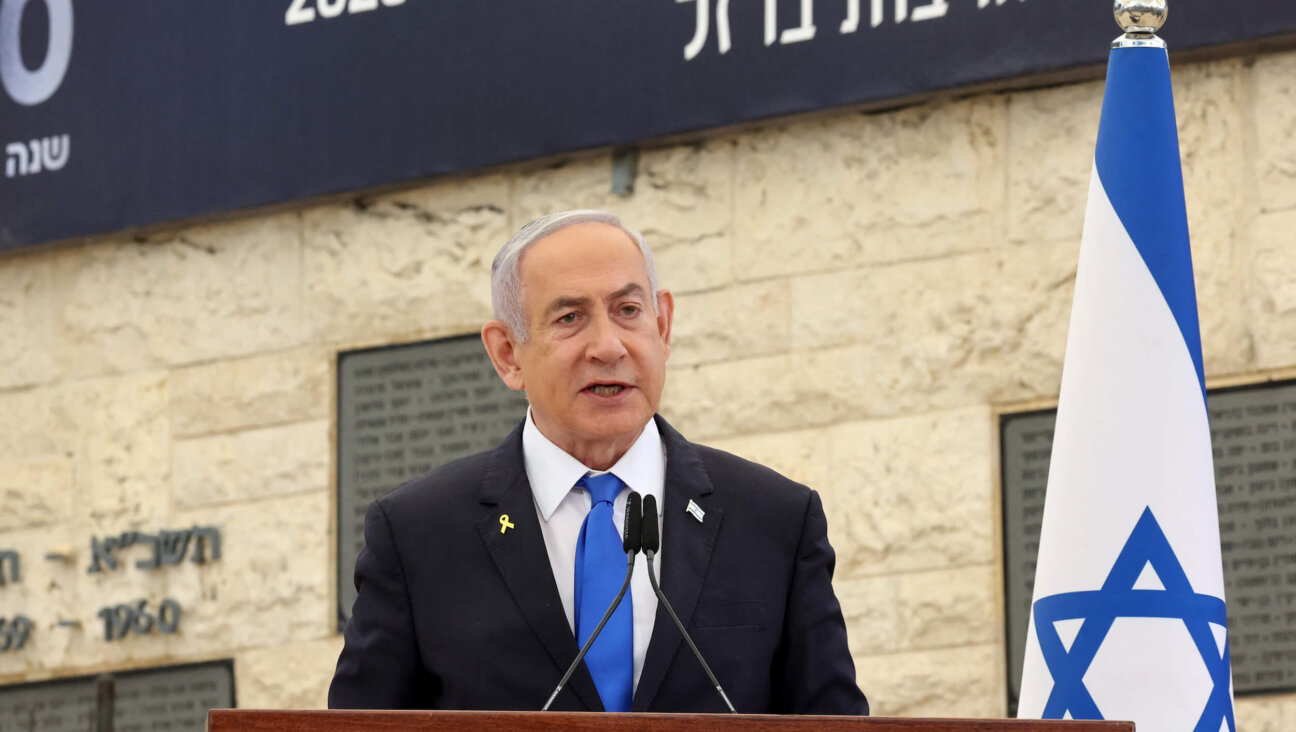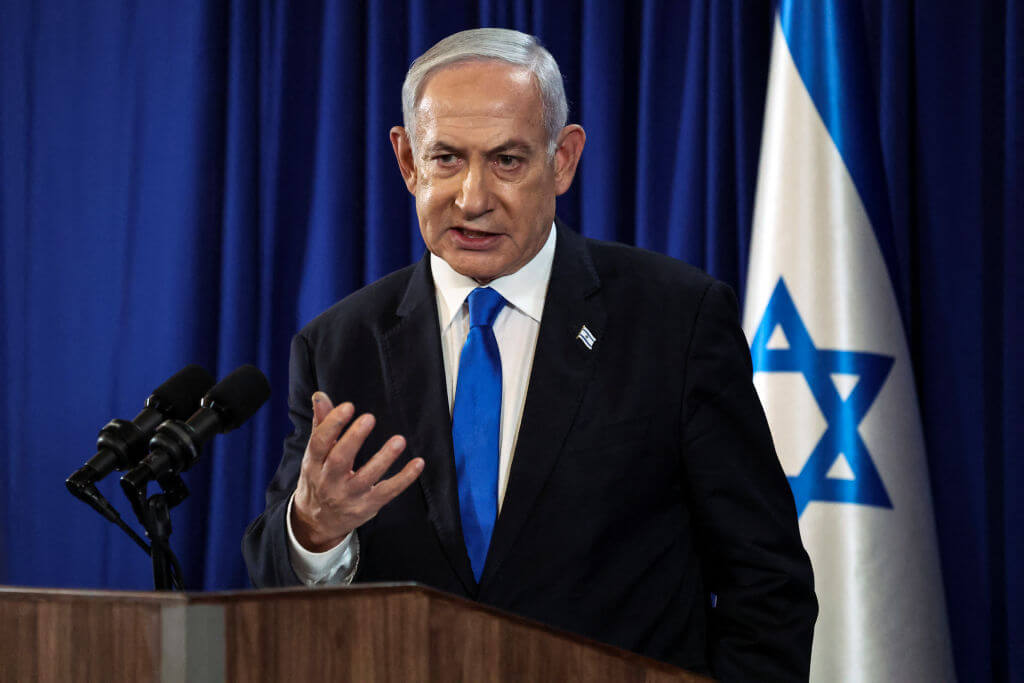John Kerry Meets With Palestinians as Israel Pushes New Settlements

Palestinian President Mahmoud Abbas met Secretary of State John Kerry on Wednesday as Israel approved new homes in a West Bank settlement, potentially hampering U.S. efforts to persuade Abbas to resume peace talks.
His meeting with Abbas in the Jordanian capital Amman was Kerry’s second in as many days. It was to be followed, according to a Palestinian official, by a briefing on the U.S. proposals that Abbas will give to other PLO leaders on Thursday ahead of a decision on whether they should resume negotiations with Israel.
Neither U.S. nor Palestinian officials have given details of the discussions between Abbas and Kerry, who is making his sixth visit to the region since he took office in February.
Israel has also said little this week but announced a step that clashed with U.S. peace efforts. The state granted initial approval on Wednesday for the construction of 732 new homes in Modiin Ilit, a settlement midway between Jerusalem and Tel Aviv.
“These are very preliminary stages,” an Israeli spokeswoman said after the planning committee of Israel’s military-run Civil Administration in the occupied West Bank gave the green light for the project. “Any more advanced stages require the approval of the Defence Ministry.”
Abbas has said settlement expansion must stop before negotiations that collapsed in 2010 over the issue can resume. Israeli Prime Minister Benjamin Netanyahu has called on him to return to talks unconditionally.
A positive Palestinian decision, if one were to emerge on Thursday or soon thereafter, would be the first tangible sign of progress in Kerry’s nearly six-month drive to revive the Israeli-Palestinian peace process, now largely overshadowed by upheaval in Egypt and civil war in Syria.
“The president will present the offer made to him by Mr. Kerry in order to make a decision about it,” Wasel Abu Youssef, a Palestine Liberation Organization (PLO) official, told Reuters in Ramallah of Abbas’s plan to brief PLO colleagues on Thursday.
Palestinians also want deliberations on a future state to be based on lines that existed before Israel captured the West Bank and East Jerusalem in the 1967 Middle East war.
Netanyahu has called those boundaries indefensible. But there has been speculation in Israel that he might accept – with reservations and part of a compromise with Abbas – a U.S. statement declaring them a foundation for talks.
NEW BUILDING
Mohammed Ishtayeh, a member of the Palestinian negotiating team, suggested the go-ahead for the Modiin Ilit building plan was an attempt by what he termed Israel’s pro-settler government to hamper Kerry’s efforts.
“It has become a trend to see such Israeli behaviour each time an American or an international official visits the region to push forward the negotiation track,” he said.
Israeli political commentators, however, have raised the possibility that Netanyahu, while formally opposing a settlement freeze, might agree to limit new construction to enclaves that Israel plans to keep in any deal with the Palestinians.
Modiin Ilit, adjacent to the 1949 Green Line that divides Israel from the West Bank, would probably fall into that category.
On his sixth visit to the region since taking office, Kerry and Abbas covered “all issues that can contribute to” resuming talks during their meeting on Tuesday, Abbas’s spokesman, Nabil Abu Rdainah, told the Palestinians’ WAFA news agency.
ARAB LEAGUE
Kerry’s meeting with Abbas on Wednesday followed his talks in Amman with officials from Arab nations that included Bahrain, Egypt, Jordan, Kuwait, Morocco, Qatar, Saudi Arabia and the United Arab Emirates.
“Beyond that, all details of what would be agreed to and any next steps are still being determined,” a senior State Department official, who spoke on condition of anonymity, said earlier in the day.
Kerry has sought to ensure that any new peace process would have the backing of the Arab League states, which, if they were to offer Israel a comprehensive regional peace, could provide a strong incentive for Israeli compromise.
After a round of shuttle diplomacy between Abbas and Netanyahu at the end of June, Kerry said: “With a little more work, the start of final status negotiations could be within reach”.
However, Israeli officials said they were unaware of any plans by Kerry to visit Israel on his latest trip, and some diplomats and Middle East analysts are sceptical that the Israelis and Palestinians will resume peace talks soon.
The core issues that need to be settled in the more than six-decade-old dispute include borders, the fate of Palestinian refugees, the future of Jewish settlements in the West Bank and the status of Jerusalem.
Most countries consider Israel’s settlements on occupied land illegal, a view it disputes.
The European Union said on Tuesday it would bar financial assistance to Israeli organisations operating in the occupied territories, a move Israel’s prime minister denounced as meddling in bilateral relations with the Palestinians.
A message from our CEO & publisher Rachel Fishman Feddersen

I hope you appreciated this article. Before you go, I’d like to ask you to please support the Forward’s award-winning, nonprofit journalism during this critical time.
We’ve set a goal to raise $260,000 by December 31. That’s an ambitious goal, but one that will give us the resources we need to invest in the high quality news, opinion, analysis and cultural coverage that isn’t available anywhere else.
If you feel inspired to make an impact, now is the time to give something back. Join us as a member at your most generous level.
— Rachel Fishman Feddersen, Publisher and CEO























